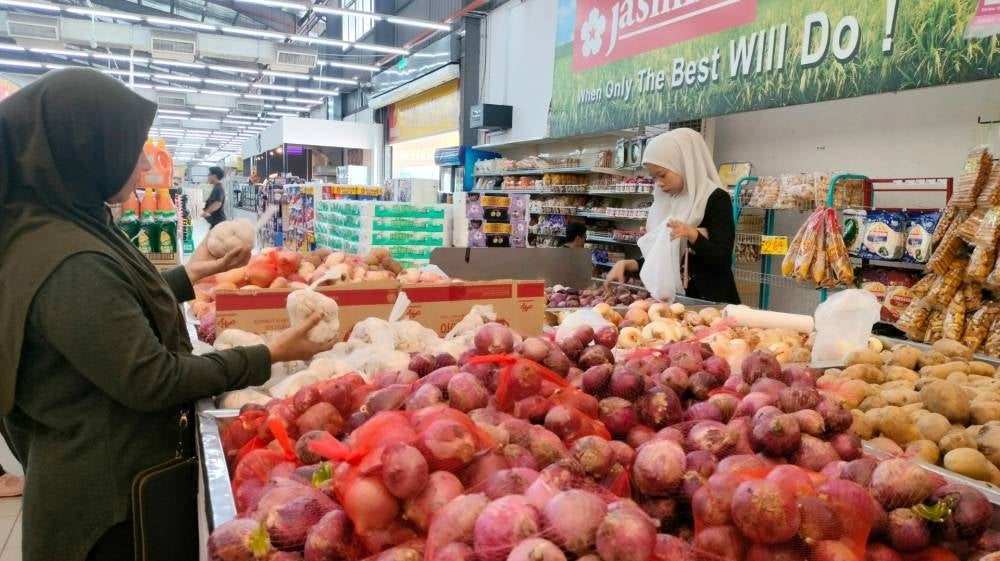Malaysia's low self-sufficiency ratio contributes to price hikes - Experts

SHAH ALAM - Malaysia's low Self-Sufficiency Ratio (SSR) contributes to price hikes, which is a global problem made worse by monopolies in the retail and wholesale sectors, experts say.
SSR is the percentage of a country's food needs that it can produce domestically.
Bank Muamalat Malaysia Bhd chief economist and social finance head Dr Mohd Afzanizam Abdul Rashid said Malaysia's SSR for some food items, such as chilli, round cabbage and rice is less than 100 per cent.
“For instance, chilli, round cabbage and rice has an SSR of 29.3 per cent, 40.3 per cent and 65 per cent as of 2021.
"This means that Malaysia needs to import these food items to meet local demand,” he said.
Hence, he said, consequently these imported items maintain higher prices, especially if the ringgit remains weak against the US dollar.
“This problem extends beyond Malaysia, affecting purchasing power as people must allocate more money for the same amount of food.
“Common policy tools like price control, subsidies, and cash transfers can alleviate the burden on low-income groups,” he said.
However, Afzanizam also stressed the need for the government to enhance law enforcement to curb malpractices like hoarding, price manipulation, and cartel behaviour among irresponsible businesses.
Meanwhile, University of Science and Technology Provost for Research and Innovation Professor Geoffrey Williams highlighted Malaysia's path towards higher prices, increased inflation, and ongoing challenges for low-income communities.
He said several factors contribute to price hikes, including a lack of competition, the existence of cartels, and monopolies in the retail and wholesale sectors.
"Restrictions on food imports hinder retailers and wholesalers from sourcing more affordable supplies, and some consumers need to explore cheaper alternatives to accept higher prices.
"This issue is global, specific factors in Malaysia exacerbate the problem.
"The absence of competition and manipulated markets play significant roles,” he said.
Williams stressed that wholesalers and retailers often pass on increased costs to consumers, as seen in the rice market.
"Consumers tend to blame the government for rising prices when it's actually food suppliers in stores and restaurants driving these increases.
"As prices continue to rise, the cost of living increases, which disproportionately affects low-income groups," he added.
Williams suggested that the government should eliminate monopolies, cartels, and anti-competitive practices, allowing retailers to source goods from more affordable overseas markets.
He also recommended that the government stop food subsidies at various supply chain stages to discourage suppliers from manipulating supplies to maintain high prices, with the expectation of receiving subsidies and payments from the government to reduce prices for consumers.
“This shift is an inevitable consequence of long-term subsidies and underscores the urgency of subsidy rationalisation," he said.
Recently, Sinar reported that essential food prices have increased significantly nationwide after rice prices went up.
Shallots, garlic, and dried chili prices have risen by 30 to 40 per cent, causing concern among consumers.
Shallots, for example, used to cost RM3 to RM6 per kilogramme but now cost RM9 to RM13, while garlic went from RM4 to RM9 per kilogramme.
Dried chili prices also increased from RM13 to over RM21 per kilogramme.
Download Sinar Daily application.Click Here!















